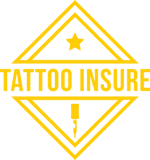Posted: June 23, 2017 at 3:14 pm
Some believe that it enhances their appearance, some believe it to be a way to express their individuality and then there are those who want to align themselves with a subculture. Whatever the reason may be, there can be no moral ground to hold onto when opposing personal choices.
It’s a fact that tattooing, piercing or body modification does not pose much danger when done by a trained professional in a controlled environment. However, considering the rising number of cases where the health of clients has been compromised, it makes one wonder whether it’s time for the industry to be more regulated.
Body modification involves many complicated procedures and there are several body transformation options that are available at a tattoo and piercing studio such as tongue splitting, beading, ear reshaping, branding and corneal tattooing.
Tongue splitting is done by cutting or burning the tongue in order to give it the appearance of a snake’s tongue. There’s also a rising trend of putting subdermal or transdermal implants below the skin to create a pattern or support heavy jewellery. The elf ear has also become quite popular these days wherein a triangle of skin and cartilage is cut out of the ear and joined to give it the look of an elf ear.
Why Body Transformation should be regulated?
These procedures are quite surgical in nature and need to be better regulated to ensure that the artist doing this job is adequately trained to perform it in the first place. Making consent necessary doesn’t mean that other concerns can be overlooked because the injuries sustained in a surgery and male circumcision are also consented to, but are still governed by many regulations.
There are several health concerns associated with tattooing and other forms of body modification. From the perspective of health and hygiene, it is true that this industry needs stricter regulations to ensure that customers are not caused any harm while getting a piercing or tattoo done. Many tattoo artists are turning to insurance companies to provide them with
cover for unforeseen circumstances that can turn up during the tattooing process.
A number of people who are not trained and have no experience of tattooing whatsoever are making tattoos from their homes. These people are referred to as ‘kitchen magicians’ or ‘scratchers’ which is a slang for self-proclaimed tattoo artists who work out of their home. It puts their customers at a severe risk of infection and getting a permanent tattoo which is far from what they desired it to be.
Due to lack of awareness about the dangers posed by insecure premises and untrained professionals many people opt for it because they get these services at much lower prices than a tattoo studio.
Many customers after getting a shabby tattoo turn to tattoo artists who can undo it for them. Many tattoo artists are now opting for
insurance that covers them in the event of anything going wrong during the process of an inking a tattoo or tattoo removal.
Why Tattooing should be regulated?
The only
regulation that is implemented with regards to tattooing is that a person below the age of 18 cannot get a tattoo done without the consent of their parents or guardians. There are no regulations to prevent people from tattooing at unlicensed premises and this is what most tattoo artists are hoping turns into a legislation.
There are many tattoo salon operators who believe the state should have greater control and enforce legislations that makes it impossible for untrained tattoo artists to perform these jobs.
In the name of sterilisation there are few tattoo artists that simply put their equipment in boiling water and expect it to be free of contamination. There should be regulations to ensure that sterilisation is done in the right way and not treated like a mere formality that needs to be met. The
sterilisation standards should meet those that are practised in a hospital.
There are known cases of tattoo artists who save money on equipment by using components from radio-controlled cars and tape deck motors. They use hot glue or duct tape to hold these devices together. The presence of regulations regarding use of proper equipment can also reduce the number of botched tattoo jobs. It will also discourage artists who enter this field believing that if they can draw on paper then they can ink the skin as well.
- What you can do to ensure your safety?
If you are about to get a tattoo done then you should ensure that fresh needles are used and that the needle that was used on the previous person is not being used again on you. It is also advisable to get a
tattoo removal insurance in case you regret your tattoo later on and need to get it removed.
You should also make sure that the tattoo artist is adequately trained and has the necessary license to do the job and that they have a good track record of making tattoos. Ask them for their portfolio or speak to people who have already been to the tattoo parlour where you intend to get your tattoo done.
Pay attention to the ink that is being used by the artist. It should be of the best possible quality and preferably a popular brand as some tattoo artists may use cheap tattoo inks to save money. Inferior quality inks contain additives that can cause allergies and skin infections.






